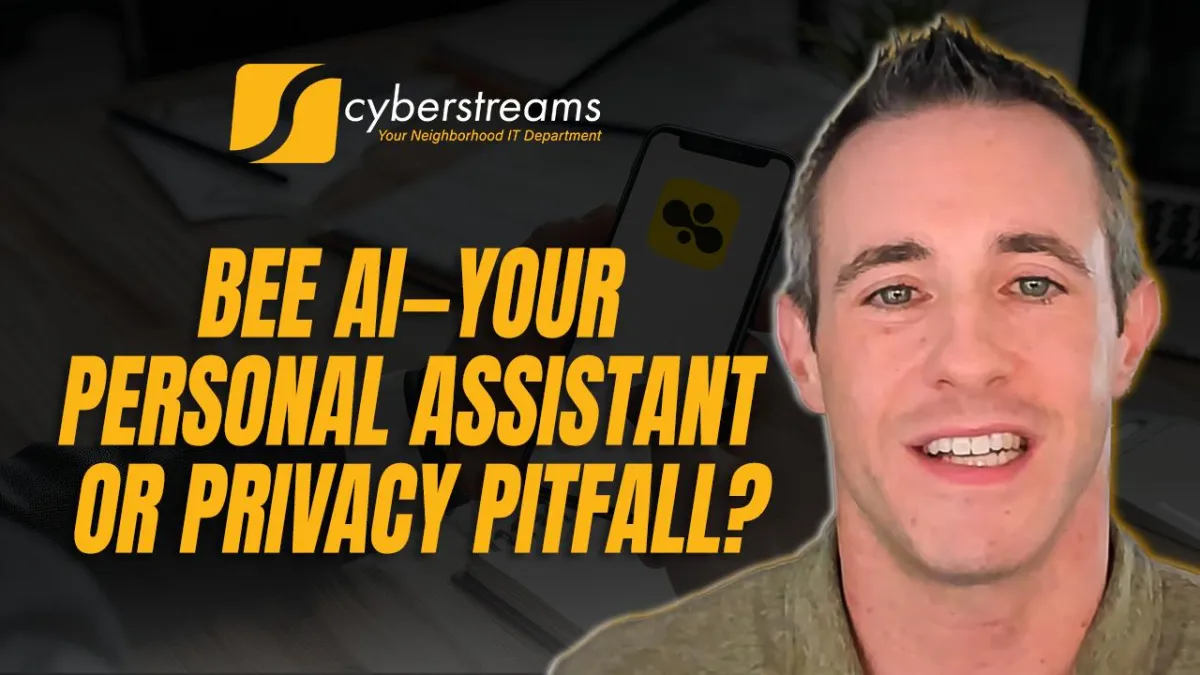
Bee AI, Your Personal Assistant or Privacy Pitfall?
If you're juggling a million tasks, struggling to keep track of conversations, commitments, or even where you parked the car, Bee AI might sound like a dream come true. It’s positioned as your personal assistant, designed to lighten your cognitive load and capture important moments so you don’t have to.
I recently tried the Bee AI app on my Apple Watch, and I have to admit, it’s impressive. Within hours, it began generating smart daily summaries, helpful reminders, and task suggestions. But while it’s great at catching what you miss, it comes with a catch: it's always listening.
Let’s unpack Bee AI like a brand-new smartwatch box, clearly and simply.
What Exactly Is Bee AI?
Imagine having a tireless, invisible secretary clipped to your wrist. Bee AI quietly records, transcribes, and analyzes your daily interactions, from casual conversations to client meetings. It’s designed to:
Transcribe your life in real time
Create nightly summaries of your day
Flag important facts and reminders
Generate to-do lists from conversations and calendar events
Whether you use the Apple Watch app or opt for their $50 Fitbit-style wearable, the functionality is largely the same: Bee listens, learns, and logs.
Bee syncs with your iPhone or Apple Watch to pull in relevant data from your contacts, calendar, emails, and location history. The result? A highly personalized assistant that “remembers” everything for you, even those offhand commitments you forgot five minutes after making them.
As someone with ADHD, I’ve found this to be a real lifeline. Within a day of use, Bee AI was already reminding me of client follow-ups I had completely forgotten about. Its nightly summaries are a bit verbose, but they only take a quick 60-second review, and they’re surprisingly accurate.
The Privacy Tradeoff
Here’s where things get tricky.
Bee AI’s always-on microphone is a double-edged sword. According to Bee’s privacy policy, it doesn’t store audio, it only transcribes in real time. It also uses voice isolation to focus on you, not everyone around you. But even so, it’s easy to forget it’s listening, and that’s where the privacy concerns begin.
Yes, Bee can help small business owners, freelancers, and busy professionals remember key details like a client’s mention of a deadline or a subtle shift in project scope. But to do that, it has to hear everything.
A 2025 Mashable report even highlighted how helpful Bee AI can be for users with ADHD, thanks to its automated note-taking and task generation. Still, the app’s reliance on cloud processing, and its partnership with Amazon for backend services, means you're placing a significant amount of trust in how your data is handled.
3 Takeaways and Next Steps
If you're considering Bee AI, here are a few tips to help you make the most of it, while staying safe:
1. Leverage Bee’s Strengths
Use Bee to capture commitments and automate reminders, especially helpful if memory or organization is a challenge. Just remember to review nightly summaries to stay aligned with your goals.
2. Exercise Your Brain
Don’t rely on Bee entirely. Let it inspire journaling, planning, or deeper reflection. Its summaries can spark insights, but your mind is still your most powerful tool.
3. Protect Your Privacy
Mute Bee during sensitive conversations and review app permissions regularly. Limit what it accesses and double-check where your data is going.
Conclusion: A Helping Hand or a Hidden Risk?
Bee AI offers a compelling solution for anyone overwhelmed by the pace of daily life. It’s smart, proactive, and genuinely helpful, especially for neurodivergent users or professionals constantly in motion. But convenience always comes with a tradeoff.
Yes, Bee can help you remember everything. But in doing so, it has to hear everything. Whether that tradeoff is worth it depends entirely on your personal comfort with technology, and your tolerance for risk when it comes to privacy.
Bee AI isn’t just a productivity tool. It’s a mirror reflecting the larger question of our time: how much are we willing to share in exchange for convenience?
